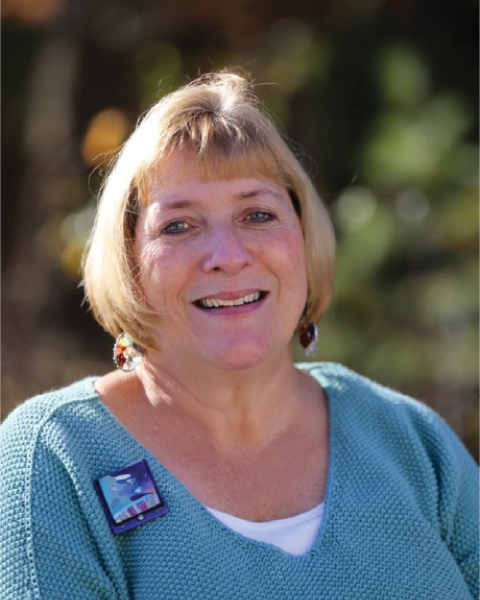The Power of New Hampshire’s Developmental Disabilities Network
The shift from institutional living to individuals with developmental disabilities actively participating in community life didn’t happen overnight. This change was driven by education and legislation aimed at broadening society’s understanding of developmental disabilities and the rights of individuals to live full and independent lives.
In this post, I will discuss the various ways our state’s Developmental Disabilities Network (DD Network) supports individuals with developmental disabilities and their family members. I will also share my thoughts on why legislation, more specifically the Americans with Disabilities Act (ADA) and the Developmental Disabilities Assistance and Bill of Rights Act (DD Act), matters.
Defining Developmental Disability
According to the Centers for Disease Control (CDC) a developmental disability is defined as a lifelong physical, behavioral, language, or intellectual disability that can start before birth or in early childhood. Some common developmental disabilities include autism spectrum disorder (ASD), cerebral palsy (CP), intellectual disabilities (ID), and attention deficit hyperactivity disorder (ADHD).
Some history about the ADA & DD Act
This year marks both the 35th anniversary of the Americans with Disabilities Act (ADA) and the 50th anniversary of the Developmental Disabilities Assistance and Bill of Rights Act (DD Act). The ADA is a civil rights law that protects people with disabilities from discrimination and provides access to all areas of public life. It covers transportation, telecommunication, employment, and government services. The DD Act invests in state-based programs that support the inclusion of people with developmental disabilities. This ensures that people with Developmental Disabilities have equal access, rights, and opportunities within their state. Both of these programs are important because, together, they protect the civil rights of all individuals with disabilities and promote systemic changes that benefit everyone.
The DD Act was signed into law by Gerald Ford in 1975 and has been updated several times, with the most recent update occurring in 2000. The federally funded DD Act supports three key programs: University Centers for Excellence in Developmental Disabilities (UCEDDs), State Councils on Developmental Disabilities (DD Councils), and Protection and Advocacy Systems (P&As). Working collaboratively or independently to improve the lives of people with developmental disabilities and their families, these three programs operate in every state. They are referred to as the Developmental Disabilities Network (or DD Network).
NH’s Developmental Disabilities Network
New Hampshire’s DD Network includes three federally funded partners working together to advance inclusion, self-determination, and full community participation for people with developmental disabilities and their families. Those organizations are…
Institute on Disability at the University of New Hampshire
Part of the UNH College of Health and Human Services, the Institute on Disability (IOD) promotes equal opportunities, access, and belonging for people with disabilities across the state. Through more than 50 active grants and contracts, the IOD provides training, technical assistance, research, and evaluation to ensure full participation of individuals with disabilities in living, working, and thriving in their communities.
Recent Impact:
Between July 2024 and June 2025, the IOD conducted 162 on-site quality reviews of residential and day programs funded by Medicaid waivers. These reviews ensure services and support individuals with disabilities to live and participate fully in their communities--not in institutions.
New Hampshire Council on Developmental Disabilities
The NH Council on Developmental Disabilities (NH CDD) leads statewide advocacy, capacity-building, and systems change efforts. Guided by a 5-year state plan, the NH CDD funds projects that promote inclusion, support self-advocacy, and address service gaps across the state.
Recent Impact:
NHCDD partnered with housing advocates to expand options for people with disabilities—helping to launch House Bill 1168, a legislative study committee focused on the effects of the housing crisis and on increasing the right to build accessible units on private property.
Disability Rights Center – New Hampshire
Disability Rights Center – NH (DRC-NH) is the state’s protection and advocacy agency, working to defend the legal rights of people with disabilities. Through legal representation, public policy work, and oversight of facilities, DRC-NH ensures that people with disabilities can live free from abuse, discrimination, and unnecessary institutionalization.
Recent Impact:
In May 2025, DRC-NH launched the Disability Facility Hub, a centralized, searchable database offering public access to essential information about residential facilities for youth and adults with disabilities—including guidance on resident rights.
These highlights offer just a glimpse into the powerful work being led by New Hampshire’s DD Network. Together, these organizations are driving meaningful change—improving lives, advancing equity, and building more inclusive communities across the state every day.
From Where I Sit…
So why should the Americans with Disabilities Act and the Developmental Disabilities Assistance and Bill of Rights Act matter to everyone? The CDC reports that 1 in 4 adult residents in the US (28.7%) have a disability. Plus, New Hampshire is the second-oldest state in the country and is getting older. Age often brings disability with it, but that should not mean that our seniors should no longer participate in their communities. I have said it repeatedly. . . disability is the only minority that anyone can join at any time and it never discriminates. We are all one accident or illness away from a disability.
Beyond that, the ADA and DD Act are laws that make our communities more accessible. We become much more accepting of our differences when everyone can access our systems and public spaces.
So, remember that disability rights are about protecting the quality of life for everyone.
